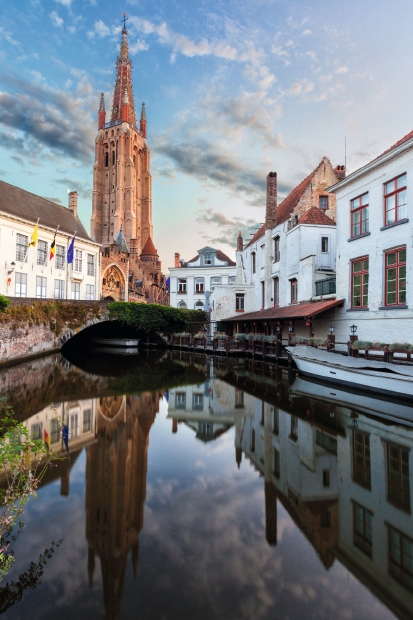Usually, one of the first indications that you’ve entered a bilingual country is that the road signs are in two languages. At least this is the case in Ireland or Wales — but not in Belgium. In Flanders, the signs are written in Dutch. In Wallonia, they are all in French.
French is spoken in Flanders, by the small local Francophone community, but more notably by the huge number of French people who descend on Brugge for the Christmas sales. The French registration plates and the gaggle of overly loud wanderers with cameras are giveaways, but don’t even think about trying French here yourself. It’s considered rude if it’s not your native language.
You could, however, always make a stab at Dutch. I have done so myself for a couple of years, in a bid to confound the stereotype of the lazy monoglot Brit. It’s had mixed results: dank u wel (thank you) and tot ziens (bye) usually get a reply either in English (they’re trying to be polite) or French (they found your pronunciation weird). But on Sunday I struck gold. I managed to get an alstublieft (‘you’re welcome’) from the man behind the counter at De Striep, Brugge’s leading comic shop.
Owing to their political-linguistic predicament, the Flemings seem to be even more enthusiastic Anglophones than their cousins in the Netherlands. Promotional details on the reverse side of packets of Lay’s crisps are in Dutch, French, German (all indigenous languages) — and English. The main Flemish newspapers, De Standaard and De Morgen, list BBC television channels in the same way the Irish Times and Irish Independent do: as honorary domestic stations. Native Francophone channels are only listed in small print alongside TF1 and France 2 from across the border.
In the shops you will find Le Monde or Le Figaro to cater for visitors, but no sign of Le Soir or any native Francophone newspaper. Even road signs for places outside the country are in Dutch: Lille is confusingly rendered Rijsel. There are some bilingual signs in Brussels, but even there they are prone to vandalism by Flemish nationalists.
The scarcity of bilingual road signs in a country that is nominally bilingual strikes me as being slightly ominous. The only time I saw ‘Bruges’ spelt out as such was when an ice fair advertisement sported an ‘English’ translation for a forthcoming attraction. Bruges is what we native Anglophones still call it. Like Iper — or Ypres to you and me — Flanders’s French legacy is now preserved mainly in the minds and on the tongues of Englishmen.






Comments